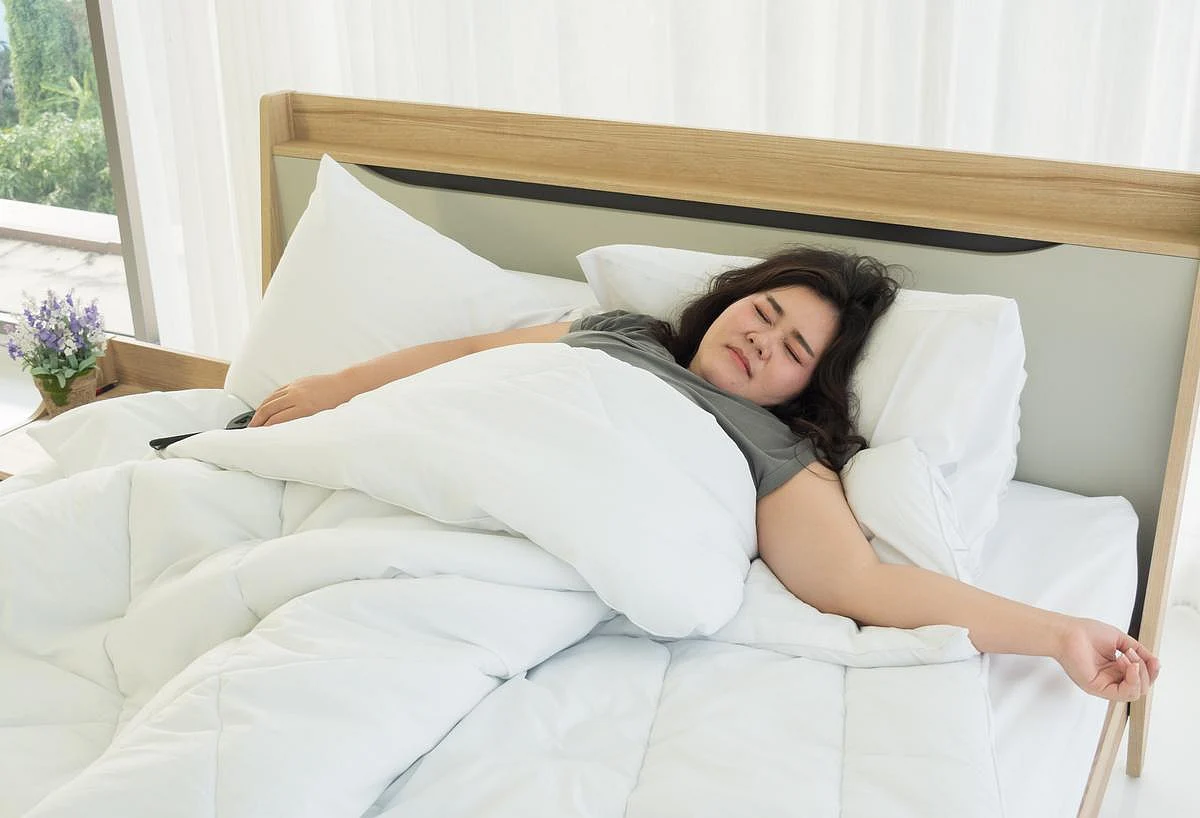Why Sleep Gets Harder With Age And How To Sleep Better
TUESDAY, March 4, 2025 -- Tossing and turning more as you age? You’re not alone -- and experts think they know why.
Dr. Shelby Harris, a sleep psychologist in White Plains, N.Y., explained that stress, sleep structure and hormonal changes can impact sleep as people age.
"As we start to move into our 60s, 70s, you have more issues with the depth of your sleep, so your sleep is just lighter in general," Harris told CBS News. "There's sleep disorders, like insomnia, that happens, and then you have to go to the bathroom more at night."
Research shows up to 70% of people 65 and older have chronic sleep problems, and hormonal shifts play a big role in that, especially for women.
"We have more hot flashes, night sweats. You actually have more sleep apnea in women as well, and just more insomnia too," Harris said.
There may also be some evolutionary reasoning behind why older adults get less deep sleep, Harris added.
"The deepest stage of sleep is where your muscles are repairing, you're growing -- and as you're getting older, you don't need that ideally as much as you do when you're younger," Harris said, adding that younger kids get a lot of deep sleep.
"(Older adults) just wake up a lot more because of pain and movement and having to urinate," she added.
What's more, Harris told CBS News it’s a myth that older adults don’t need much sleep.
"If a doctor tells you that is normal to get a lot less as you get older, definitely seek some other advice," Harris said.
Along with keeping a cool, dark and quiet sleep environment, she offered these tips:
-
Meditate during the day. “If you have a busy brain, meditating five minutes during the day can help to actually ease your brain more at night,” Harris said.
-
Limit daytime sleep. To try and get better sleep at night, you can also try spending less time in bed during the day, Harris added. That means reducing naps.
-
Stick to a regular bedtime.
If sleep issues last more than a few weeks, it’s important to talk with a doctor, Harris urged.
"We do have a lot of treatments like cognitive behavior therapy for insomnia, you might need a sleep study, medication," she said. "We have lots of options."
Sources
- CBS News, March 3, 2025
Disclaimer: Statistical data in medical articles provide general trends and do not pertain to individuals. Individual factors can vary greatly. Always seek personalized medical advice for individual healthcare decisions.
© 2025 HealthDay. All rights reserved.
Read this next
Sleep Difficult For LGBTQ+ Teens, Study Says
WEDNESDAY, Sept. 17, 2025 — LGBTQ+ teenagers in the United States might be losing sleep due to violence, bullying and rejection, a recent study says. Gender and sexual...
Permanent Standard Time Could Cut Strokes, Obesity Among Americans
TUESDAY, Sept. 16, 2025 — Most Americans would be healthier if the nation dropped daylight saving time, a major new study says. Switching to permanent standard time would...
Insomnia Might Increase Dementia Risk Among Seniors
THURSDAY, Sept. 10, 2025 — Your beauty rest might be protecting your brain health as well, a new study says. Seniors with chronic insomnia might experience a faster decline...
More news resources
- FDA Medwatch Drug Alerts
- Daily MedNews
- News for Health Professionals
- New Drug Approvals
- New Drug Applications
- Drug Shortages
- Clinical Trial Results
- Generic Drug Approvals
Subscribe to our newsletter
Whatever your topic of interest, subscribe to our newsletters to get the best of Drugs.com in your inbox.


